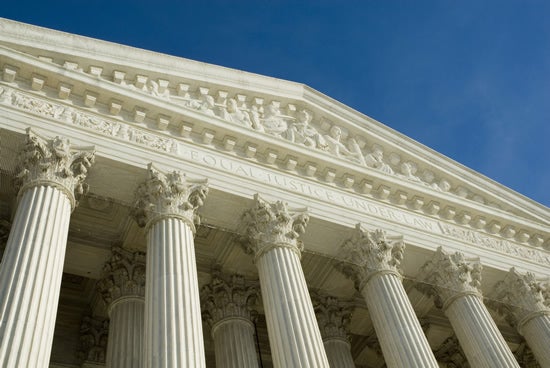Yesterday’s decision by the Ninth Circuit striking down California’s Proposition 8, which amended the California constitution to define marriage as a legal institution involving one man and one woman, has reignited the public debate about judicial activism.
When courts weigh in on such controversial and political topics, it is necessary to stop to consider a larger question: What is the proper role of the courts?
Explaining the appropriate interplay between the branches of government and the proper methods of interpretation that judges should employ when determining whether a law is constitutional, Heritage’s Robert Alt answers the question in the latest addition to Heritage’s Understanding America series.
The Founders sought to protect liberty by separating powers in the federal government. By giving each its own authorities to exercise and defend, the branches check each other and ultimately prevent each other from usurping power. It is the duty of the courts to interpret the law at issue in the case before them. In Marbury v. Madison, the Supreme Court established judicial review, the authority to declare a law void if it is contrary to the Constitution. However, Alt notes that
the Marbury Court did not claim that the courts possessed the exclusive or supreme authority to interpret the constitutionality of laws. The other branches of government are also legitimately responsible for interpreting the Constitution.
This is how our government is supposed to work. But over time, the Supreme Court has grabbed power by declaring that its decisions are the supreme law of the land. Regretfully, the other two branches have willingly acquiesced to such claims of judicial supremacy.
The federal courts have not only seized power; they have also changed how judges approach one of their fundamental duties: the interpretation of laws. The proper role of a judge is a modest one. Alt outlines the appropriate method of interpretation:
In determining whether a contested law is consistent with the Constitution, judges act within their proper judicial power when they give effect to the original public meaning of the words of the law and the Constitution.
This philosophy means that that judges abiding by their constitutional duties will, at times, uphold laws that some may consider bad policy and strike down laws that may be considered good policy.
Yet in recent decades, some judges have chosen to engage in judicial activism by deciding cases according to their own policy preferences rather than applying the law impartially according to its original public meaning. They have justified their decisions through such free-wheeling, unbounded, “I do what I want” theories as “living constitutionalism” and the selective imposition of foreign law when the outcome they desired did not comport with the law’s original public meaning.
The courts, led by activist judges, have increasingly intervened on questions properly decided by the other branches or the states, thus undermining the ability of the American people to engage in true democratic debate within federal and state legislatures. It is not surprising, then, that the public increasingly brings its grievances directly to the courts rather than through the elected branches of government. But the solution lies in the hands of the people, who should demand that candidates for office—particularly the President, who appoints federal judges, and Senators, who confirm federal judges—appoint and confirm only those judges who will rule based upon the words and original public meaning of the Constitution.





























